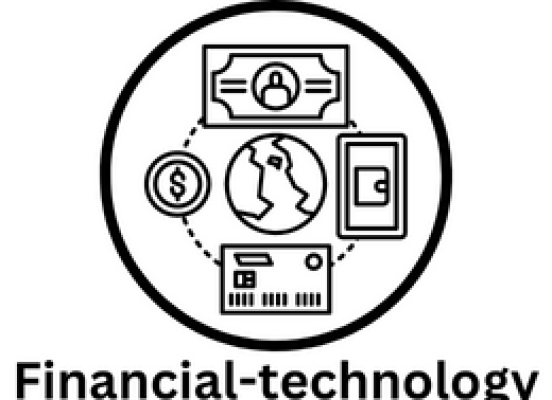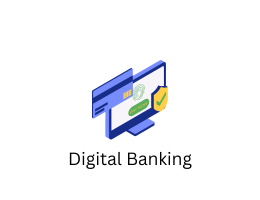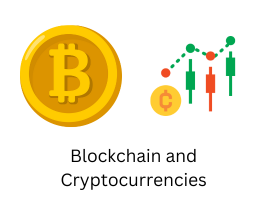
How Fintech is Transforming the Financial Services Industry
- By admin --
- Monday, 13 Mar, 2023
Financial technology, or fintech, refers to the use of innovative technology to deliver financial services to individuals and businesses. Fintech is transforming the financial services industry, making it more efficient, accessible, and cost-effective.
Fintech companies leverage technology such as artificial intelligence, blockchain, and machine learning to create new financial products and services, as well as to enhance existing ones. These technologies enable fintech companies to provide a range of services, including online banking, mobile payments, peer-to-peer lending, insurance, investment management, and more.
One of the key drivers of the growth of fintech is the increasing use of mobile devices and the internet. As more people use smartphones and tablets to access the internet, they are also using these devices to manage their finances. Fintech companies have responded by creating mobile apps that allow customers to manage their money, transfer funds, pay bills, and access a range of financial services from their mobile devices.
Another driver of fintech is the growing demand for financial services among unbanked and underbanked populations. These populations often lack access to traditional banking services, but fintech companies are leveraging technology to provide financial services to these underserved communities. For example, mobile money services allow people to store and transfer money using their mobile phones, while peer-to-peer lending platforms enable borrowers to access loans from individual lenders.
Fintech companies are also disrupting traditional financial services by offering more convenient, faster, and cheaper services. For example, online lending platforms can process loan applications quickly and with minimal paperwork, while robo-advisors can provide investment advice and portfolio management services at a lower cost than traditional financial advisors.
Blockchain technology is another area where fintech is making significant strides. Blockchain is a decentralized ledger that enables secure, transparent, and immutable transactions. Fintech companies are using blockchain to create new financial products and services, such as digital currencies and smart contracts. Blockchain also has the potential to streamline many financial processes, such as clearing and settlement, and reduce the risk of fraud and errors.
Regulatory challenges are one of the biggest hurdles facing fintech companies. Fintech companies operate in a highly regulated industry, and they must comply with a range of regulations related to data privacy, security, and consumer protection. As fintech continues to grow, regulators are working to keep pace with the rapid changes in the industry, and many countries are developing new regulations to govern fintech activities.
One of the key areas where fintech is having a major impact is in payments. Fintech companies are disrupting traditional payment methods such as credit and debit cards, and replacing them with more innovative and efficient payment solutions. For example, mobile payment apps like Venmo and Cash App allow users to transfer money to each other instantly and for free, without the need for a bank account or credit card.
Fintech is also transforming lending and credit. Peer-to-peer lending platforms like Lending Club and Prosper allow borrowers to access loans directly from individual lenders, bypassing traditional banks. This can result in lower interest rates for borrowers and higher returns for lenders. Fintech companies are also using alternative data sources, such as social media and mobile phone data, to assess creditworthiness and make lending decisions.
Another area where fintech is making a big impact is in investment management. Robo-advisors like Betterment and Wealthfront use algorithms and automation to provide investment advice and portfolio management services at a lower cost than traditional financial advisors. Fintech companies are also creating new investment products, such as exchange-traded funds (ETFs) that track specific markets or sectors, and digital currencies like Bitcoin and Ethereum.
Fintech is also transforming insurance. Insurtech companies like Lemonade and Metromile are using technology to create new insurance products and streamline the claims process. For example, Lemonade uses artificial intelligence to underwrite policies and pay claims instantly, while Metromile charges drivers based on the number of miles they drive, rather than a flat monthly rate.
In conclusion, fintech is transforming the financial services industry by leveraging technology to create new products and services, improve existing ones, and provide financial services to underserved populations. Fintech companies are disrupting traditional financial services by offering more convenient, faster, and cheaper services, and they are leveraging technology such as blockchain to create new financial products and services. While fintech faces regulatory challenges, the industry is poised for continued growth as technology continues to evolve and more people adopt fintech services.
fintech is a rapidly growing industry that is disrupting traditional financial services and creating new opportunities for businesses and consumers alike. While there are regulatory challenges and risks associated with fintech, the potential benefits of increased efficiency, accessibility, and innovation make it a promising field for the future of finance.





